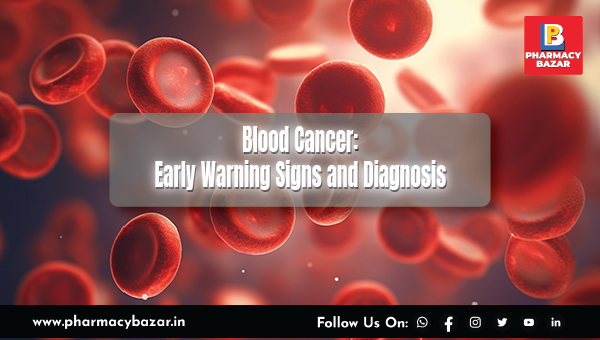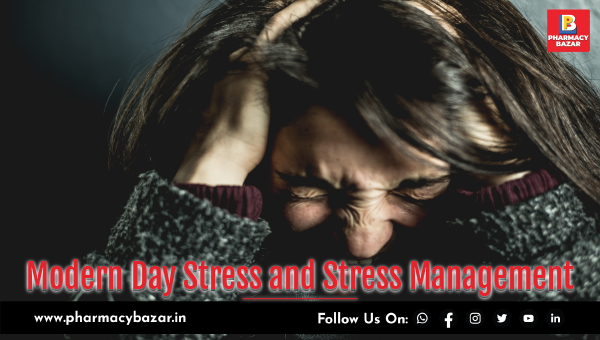Modern Day Stress and Stress Management: Navigating the Challenges of Our Time
May 23, 2023
Introduction:
In today's fast-paced, hyperconnected world, stress has become an omnipresent part of life for many individuals. From work-related demands to the expectations of social media, it's no wonder that we often feel overwhelmed and pressured. As a psychiatrist, I believe it is crucial to shed light on the modern stressors that plague our society and discuss effective ways to manage stress to improve mental well-being.
Modern Stressors:
Technology and Information Overload: The advent of smartphones, social media, and the internet has led to a constant barrage of information and distractions. This constant connectivity can be both a blessing and a curse, as it can lead to feelings of stress and anxiety.
Work-Related Stress: As the nature of work has evolved, so too have the pressures and expectations associated with it. Remote work, unpredictable job markets, and increased competition can contribute to stress and burnout.
Social Media: The need to maintain a certain image on social media can lead to increased feelings of stress, especially when comparing one's life to the seemingly perfect lives of others.
Environmental Concerns: Climate change, pollution, and other environmental issues can cause a sense of helplessness and stress, as the enormity of these problems can seem insurmountable.
Societal and Economic Pressures: As the cost-of-living increases and economic disparities widen, many people find it difficult to make ends meet, leading to financial stress.
Stress Management Techniques:
Mindfulness and Meditation: Regular mindfulness practice can help individuals cultivate self-awareness and stay present in the moment, enabling them to better manage stress. Meditation has been shown to lower cortisol levels, which can help to combat stress.
Physical Activity: Regular exercise releases endorphins, which are natural mood elevators that can help to reduce stress levels. Exercise also serves as a healthy outlet for negative emotions.
Time Management: Prioritizing tasks, setting realistic goals, and delegating responsibilities can help to reduce the burden of an overburdened schedule and alleviate stress.
Social Support: Building a strong network of friends and family can help to provide emotional support during times of stress. Sharing your feelings with someone you trust can help to reduce feelings of isolation and anxiety.
Professional Help: For those experiencing prolonged or severe stress, it may be beneficial to seek professional help from a psychiatrist or therapist. These professionals can provide guidance, resources, and therapeutic interventions to help manage stress effectively.
A psychiatrist, who understands that professional help can play a significant role in stress management for individuals who may be struggling to cope with the demands of modern life. Seeking professional help can be a valuable step in addressing and managing stress effectively. Here are some ways in which professional help can aid in stress management:
Assessment and Diagnosis: A mental health professional, such as a psychiatrist or psychologist, can assess your symptoms, identify the underlying causes of your stress, and provide a diagnosis if necessary. This assessment can help tailor a personalized treatment plan for your unique needs.
Cognitive Behavioral Therapy (CBT): CBT is a form of psychotherapy that focuses on identifying and changing negative thought patterns and behaviors. By learning to recognize and challenge unhelpful thoughts, individuals can develop healthier coping mechanisms for managing stress.
Mindfulness-Based Stress Reduction (MBSR): MBSR is an evidence-based program that combines mindfulness meditation and yoga to help individuals manage stress. A mental health professional trained in MBSR can teach you techniques to increase self-awareness, reduce negative reactions to stress, and develop more adaptive coping strategies.
Medication Management: In some cases, medication may be prescribed to help manage stress-related symptoms. A psychiatrist can assess your specific situation and determine whether medication is appropriate for you, as well as monitor your progress and make adjustments as needed.
Psychoeducation: A mental health professional can provide you with valuable information about stress, its causes, and effective coping strategies. This education can empower you to take control of your stress and make informed decisions about your well-being.
Support and Validation: Speaking with a mental health professional can provide a safe space for you to share your feelings, concerns, and experiences. This supportive environment can help validate your emotions and reduce feelings of isolation.
Skill Development: Mental health professionals can teach various stress management techniques, such as relaxation exercises, time management strategies, and assertiveness training. These skills can be applied in everyday life to help manage stress more effectively.
Monitoring Progress: Regular appointments with a mental health professional can help track your progress, identify any potential setbacks, and make adjustments to your treatment plan as needed. This ongoing support can be vital in achieving long-term stress management success.
In summary, professional help can provide a comprehensive approach to stress management, offering personalized guidance, support, and evidence-based interventions. Seeking assistance from a mental health professional can be a critical step in addressing stress and improving your overall well-being.
For a psychiatrist, it's important to note that medication for stress management is typically prescribed when an individual is experiencing symptoms of an underlying mental health condition, such as anxiety or depression, that contribute to or exacerbate stress. Medication alone may not be a long-term solution for stress, but it can be a helpful component of a comprehensive treatment plan that includes therapy, lifestyle changes, and stress reduction techniques. Here are some common types of medications that may be used in stress management:
Antidepressants: Selective Serotonin Reuptake Inhibitors (SSRIs) and Serotonin-Norepinephrine Reuptake Inhibitors (SNRIs) are often prescribed for anxiety and depression, which can contribute to stress. Examples include fluoxetine (Prozac), sertraline (Zoloft), and venlafaxine (Effexor). These medications can help balance the levels of neurotransmitters in the brain, thereby reducing symptoms and improving mood.
Benzodiazepines: These medications are typically prescribed for short-term use to manage acute anxiety or panic attacks, which can be associated with stress. Examples include alprazolam (Xanax), diazepam (Valium), and lorazepam (Ativan). It is crucial to use benzodiazepines only as prescribed and under close supervision, as they have the potential for dependence and addiction.
Buspirone: This is a non-benzodiazepine anxiolytic medication that can be used to treat generalized anxiety disorder. Buspirone (Buspar) may help reduce anxiety and stress without the sedative or habit-forming effects of benzodiazepines.
Beta-blockers: These medications are typically used to treat high blood pressure and heart conditions, but they can also be prescribed off-label to help manage the physical symptoms of anxiety and stress, such as rapid heartbeat, trembling, and sweating. Examples include propranolol (Inderal) and atenolol (Tenormin).
Sleep aids: Sleep disturbances can be both a cause and a consequence of stress. In some cases, a psychiatrist might prescribe sleep aids to help individuals with short-term insomnia. Examples include zolpidem (Ambien) and eszopiclone (Lunesta). It is essential to use these medications only as prescribed and for a short duration, as they can be habit-forming.
It's important to remember that medications should be used under the guidance of a qualified psychiatrist or healthcare professional. They can evaluate your specific situation, prescribe the appropriate medication, and monitor your progress. Medication is often most effective when used in conjunction with therapy and other stress management techniques.
Conclusion:
Modern-day stress is a multifaceted issue that requires a comprehensive approach to stress management. By being aware of the stressors that we face and implementing effective stress management techniques, we can improve our mental well-being and navigate the challenges of our time. Remember, stress is a natural part of life, but with the right tools and support, it doesn't have to control us.
DISCLAIMER: This article is the property of Pharmacy Bazar and is protected by copyright laws. The information provided in this article is for educational and informational purposes only and is not intended to be a substitute for professional medical advice, diagnosis, or treatment. Always seek the advice of a qualified healthcare provider with any questions you may have regarding a medical condition. Never disregard professional medical advice or delay in seeking it because of something you have read in this article. The author and publisher of this article do not endorse any specific treatments, procedures, or products mentioned in this article.
Recent Post

Blood Cancer: Early Warning Signs and Diagnosis

Understanding Gallstones: Causes, Symptoms, and Treatment Options

Navigating Diabetes Medications: Benefits and Side Effects

Revolutionizing Cancer Treatment: How Unleashing T Cells' Energy Could Transform Immunotherapy

The Power of Lower Back Stretches: Benefits and Best Yoga Asanas for a Healthy Spine

8 Health Conditions That Could Be Due to Magnesium Deficiency

Unlocking Brain Health: How Lifestyle Choices Impact Cognitive Functions

When Speech Takes a Surprising Turn: Unraveling Foreign Accent Syndrome

The Optimal Time to Take Your Vitamin D Supplement: Insights and Best Practices

Beyond Diabetes: Unveiling the Hidden Health Risks of Insulin Resistance

